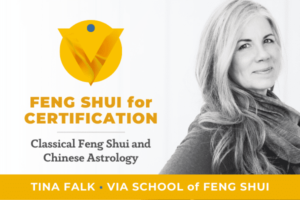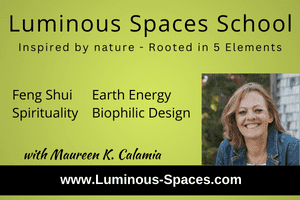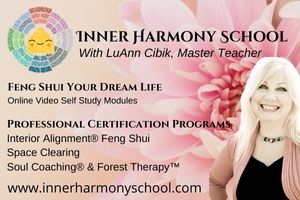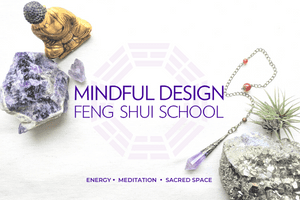The Power of Plants

Plants are far more beneficial than just beautiful blooms, decorative foliage or exotic luxuries. They provide our basic needs of shelter, food and medicine, as well as evocative aromas to please our senses. They will support, calm and nourish us, cleanse the atmosphere and replenish it with oxygen. In Western terms they are vital essentials for our healthy living.
Used in Feng Shui, the wood energy of indoor plants unites us with the natural environment, harmonising, balancing and replenishing our well-being. The earth they grow in and the colour of their flowers and containers can also be used elementally. Plants and cut flowers can be creatively placed in specific living areas to complement decor and visual aesthetics, ultimately to enhance the mood and welfare of the occupants.
In a 1995 study at Oxford Brooks University, it was found that when plants were introduced into certain rooms, people chose to occupy those rooms more often and they preferred to sit where they could see the plants. They reported lower levels of stress or anxiety and faster recovery from mental fatigue. Interiors were perceived to be more stylish, luxurious and cared-for. These findings will hardly be surprising to Feng Shui practitioners.
It is scientifically established that houseplants have sophisticated health-promoting and life sustaining eco-systems which replenish oxygen, rehydrate the atmosphere and absorb airborne pollutants. Whilst seeking to create a life support system for their space programme, scientists at the NASA investigated how the planet produces and sustains fresh air. Their research revealed a mutually beneficial relationship between plants and human life and found that houseplants would purify and revitalise air in sealed chambers.
Most plants release oxygen during the day, so placing a plant near a work desk helps to revive both performance and mood. Orchids are an exception, they release oxygen at night so these romantic plants are ideal in a bedroom. Breathing on a plant gives it carbon dioxide which it beneficially converts into oxygen to refresh the atmosphere. By releasing water vapour from their leaves, plants help to re-humidify indoor environments, thereby reducing respiratory infections. This therapeutic process also creates mini-convection currents of air movement, a logical explanation of why plants are so effective in Feng Shui to generate qi and vital life energy.
Sick Building Syndrome caused by atmospheric toxins and bio-effluents can be alleviated by introducing groups of vigorous, healthy indoor plants. During studies, plants exposed to environmental pollutants were expected to reach their absorption capacity after a while and die, but some increased their ability to remove toxins and actually thrived. It seems airborne microbes and contaminants were absorbed through the leaves, taken down to the root system and biodegraded by micro-organisms in the soil around the roots to create a source of nutrients for them and for the plant itself.
These fascinating discoveries have been recorded by Dr B.C.Wolverton in his book ‘Eco-Friendly House Plants’, in which he describes the health-promoting properties of fifty key therapeutic house plants, all beautifully illustrated and many of them firm Feng Shui favourites.
- The graceful Areca palm is rated highest for removing all tested toxins.
- The popular Peace lily absorbs formaldehyde, photocopier emissions and other chemical vapours, making it an excellent plant for the workplace.
- Boston ferns are champions at regulating humidity.
Indoor plants really appreciate tender loving care.
- Mist them with lukewarm water to clean their leaves – their lungs- and to prevent the tips from drying out and turning brown. Better still, give them a shower if you can manage that.
- Keep the water in cut flower vases fresh and clean to support you well.
- Remove all ailing leaves and blooms, avoid prickly plants or droopy leaves.
- Amethyst and clear quartz crystals placed near plants or cut flowers have been found to help them to stay fresher, grow stronger and live longer.
Vibrant healthy indoor plants and flowers make places look and feel more welcoming, promote enjoyable feelings of relaxation and wellness and encourage better concentration; you cannot have too many of them. Plants thrive by living in proximity with us, enhancing health and well-being, uplifting minds, bodies and spirits, whilst connecting us peacefully with the natural world. If only they could talk, what a wealth of valuable knowledge they could impart to us.
Watch Sylvia’s ‘The Power of Plants’ video presentation at a Feng Shui Society conference
 Sylvia Bennett is an accomplished Feng Shui master, international consultant, writer and teacher in practice for over 25 years, based in the UK and working globally. She is also a Royal Institute of British Architects ( RIBA) affiliate member and an environmental designer. Find out more.
Sylvia Bennett is an accomplished Feng Shui master, international consultant, writer and teacher in practice for over 25 years, based in the UK and working globally. She is also a Royal Institute of British Architects ( RIBA) affiliate member and an environmental designer. Find out more.



















